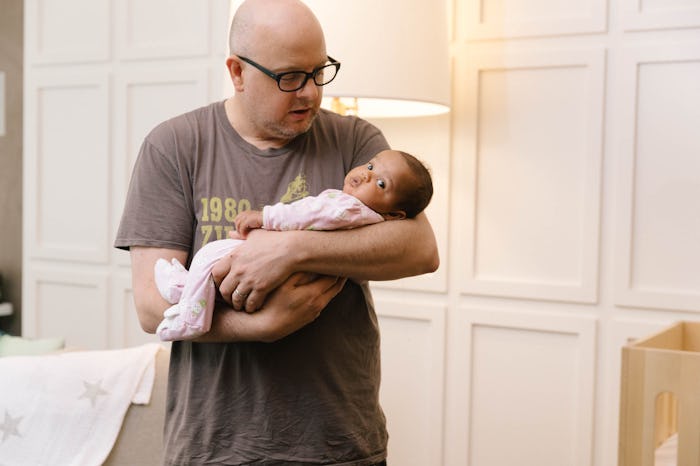Having a newborn can be utterly confusing. They hardly sleep when you want them to, and all of the crying can be downright infuriating at times. You've changed them, fed them, kept them comfortable, and they're still crying — now what? While you're wondering what could be wrong, it might strike you that maybe your baby is hurt in some way. More than likely, your baby is crying for no reason, as they tend to do at times. But, for future reference, do babies feel pain like adults do? It seems so.
For quite some time, until the 1980s, the majority of doctors believed babies' brains were not developed enough to feel pain the way adults do, noted TIME. It was believed that any reactions babies had to pricks and prods were simply muscular reactions, and not a result of feeling actual pain.
However, a recent study published by Oxford University changed all of that. In the first study of its kind, researchers used magnetic resonance imaging (MRI) technology to take a closer look at babies' brain responses when they were as young as a day old. By taking advantage of how much newborns sleep, researchers were able to observe when and if infants’ brains became more active, or consumed more oxygen, as the scientists lightly poked their feet.
The study suggested that not only do babies experience pain, but they may be more sensitive to it than adults. The researchers saw infant brains "light up" in a response four times greater to a much less stimulus than adult brains.
According to Harvard Health, repeated painful experiences in the newborn period can lead to both short and long-term problems with development, emotions, and stress responses. As a result, the American Academy of Pediatrics recently released an updated policy on newborn pain prevention and management.
There are a few things parents and providers can do to ease pain in babies — the most simple being to hold them. As Harvard Health mentioned, both swaddling and holding a baby close has been shown to lessen pain in babies. Breastfeeding or giving expressed milk can also help, as can just simply touching or stroking your baby, and talking to them softly.
If you're worried about your baby being in pain, the best thing to do is to talk to your pediatrician regarding the next step. While there will be times your baby has to undergo painful moments, even if you don't want them to, knowing what they're feeling and how you can help is a big relief.
